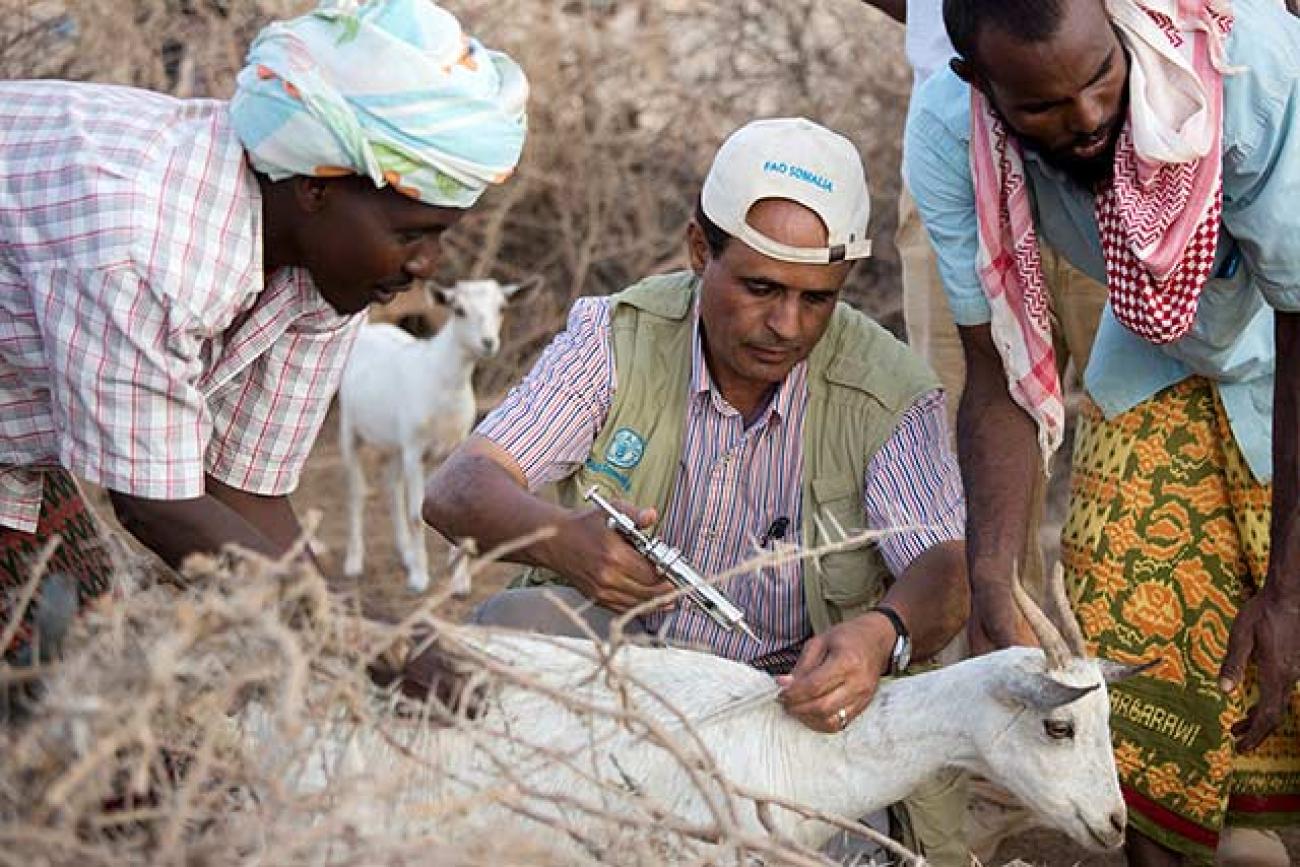Somalia has adopted a new Livestock Sector Development Strategy, the outcome of a multi-stakeholder process led FAO and funded by the World Bank
The Federal Government of Somalia has adopted a new Livestock Sector Development Strategy, the outcome of a multi-stakeholder process led by the Food and Agriculture Organization of the United Nations (FAO) and funded by the World Bank. The strategy sets out growth and development priorities based on a climate-resilient approach that promotes investment in processing, production and marketing, improving quality and ensuring food safety.
Livestock plays a major role in Somalia
The livestock sector is of significant social and economic importance in Somalia. More than half of the population living in rural areas rely directly or indirectly on livestock and the sector is the largest contributor to Somalia’s GDP, livelihoods and economic growth. Yet its performance is undermined by a number of factors, including poor animal nutrition, cross-boundary diseases, eroded genetic resources and a lack of natural resource management and institutional weaknesses.
Sustainability and competitiveness
The Prime Minister of Somalia, H.E. Hassan Ali Kheire, officially opened the Validation Workshop where the Strategy was adopted, and called for solutions to drive the livestock sector forward. The Minister of Livestock, Forestry and Range, Hon. Hussein Mohamud Sheikh, commended the development of the Strategy as a significant milestone to achieve a more sustainable and competitive foothold in the global livestock market. In order for the sector to make a qualitative leap, the strategy states the need for the donor community to mobilize resources across different value chains.
The workshop was attended by 150 representatives federal and state governments, the private sector, industry associations, non-governmental organizations, academia and research institutes, farmers, livestock development partners and the international donor community.
Link to original story







